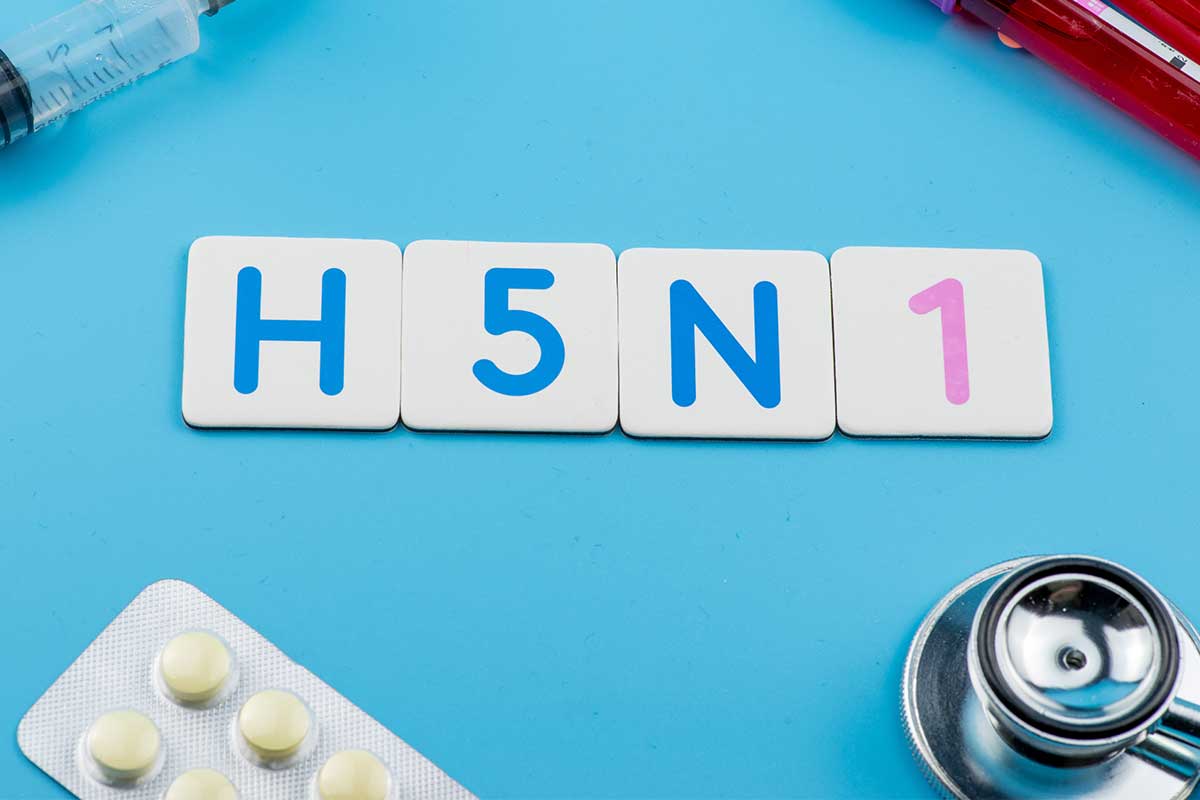Avian influenza (H5N1), or bird flu, is a disease spread among birds and caused by flu viruses. It is a highly pathogenic avian influenza virus that can infect various bird species and mammals. Bird flu is widespread in wild birds and is causing outbreaks in poultry and U.S. dairy cows, with several recent human cases in U.S. dairy and poultry workers. While the current public health risk is low, the Centers for Disease Control and Prevention (CDC) is monitoring the situation.
People can get infected if body fluids from an animal with bird flu get into a person’s eyes, nose, or mouth, or are breathed in. Farm workers, backyard bird owners, and wild bird handlers may be at higher risk of getting bird flu. Still, we recommend all New Yorkers familiarize themselves with facts about the virus and ways to protect themselves.
Symptoms of Bird Flu in Humans
- Eye redness or irritation (conjunctivitis)
- Fever
- Cough
- Sore Throat
- Muscle Aches
- Shortness of Breath
- Headaches
- Runny or stuffy nose
- Fatigue
- Less common symptoms include diarrhea, nausea, or vomiting
How to Protect Yourself and Your Loved Ones from Infection
- Report groups of sick or dead birds immediately. If avian influenza is suspected:
- For poultry, call the NYS Department of Agriculture and Markets at 518-457-3502.
- For wild birds, call the NYS Department of Environmental Conservation at 718-482-4922 or 518-478-2203.
- For other animal-related concerns, call 311.
- Avoid contact with birds that appear sick or have died.
- Avoid contact with surfaces that have bird feces.
- If you must touch sick or dead birds:
- Wear gloves and a facemask.
- Place dead birds in a double-bagged garbage bag.
- Throw away your gloves and facemask after use.
- Wash your hands well with soap and warm water.
- If you feel sick after having contact with sick or dead birds, contact your health care provider.
- Do not eat or drink raw milk or products made with raw milk. While the USDA announced a federal order to test these products for bird flu, choosing pasteurized milk is the best way to stay safe.
- Get a seasonal flu vaccine. Seasonal flu vaccination will not prevent infection with bird flu viruses, but can reduce the risk of getting sick with human influenza viruses and thus the risk for seasonal and bird flu co-infection.
Avoiding Risks to Pets and Other Animals
Mammals can become infected if they eat infected birds or spend time in an area with bird flu viruses. The H5N1 virus has been found in several mammals.
- Keep pets that go outdoors away from wild birds, poultry, and cattle and their environments.
- Consider keeping pets leashed at all times when outdoors.
- Prevent pets from eating dead birds or other animals.
- Avoid feeding pets raw meat or poultry and unpasteurized milk.
- Clinical signs of H5N1 infection in cats are better known than in dogs. Signs in either species may include the below; contact your veterinarian if your pet experiences symptoms such as:
- Fever
- Lethargy
- Low appetite
- Reddened or inflamed eyes
- Discharge from the eyes and nose
- Difficulty breathing
- Neurologic signs, like tremors, seizures, incoordination, or blindness
Sources: CDC; NYC Department of Health and Mental Hygiene; American Veterinary Medical Association
Don't miss the latest from the Office of the Public Advocate.Subscribe to the Advocate Bulletin newsletter.
